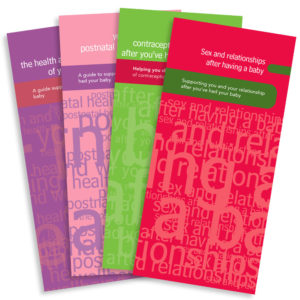Sex and Pregnancy
“Not feeling like sex during pregnancy, post partum, post-pregnancy loss or post-termination is TOTALLY OK – AND VERY NORMAL!”
Naomi Sutton.
Whether you are pregnant, recently had a baby or have suffered a pregnancy loss, sex can feel like it has ‘gone off the boil’ a bit. This is very normal but not talked about often, or explained. A lack of understanding can lead to feelings of upset, hurt, and confusion within a relationship.
There has not been a vast amount of scientific research into this area but what we do know is that most women see a decline in sexual function during pregnancy which commonly continues post-partum. The positive news is that the majority go back to pre-pregnancy sexual functioning by 12 months. Not feeling like sex during pregnancy, post partum, post pregnancy loss or post termination is totally OK (and very normal).
The key is to recognise this and communicate this with your partner, so that intimacy is maintained in other ways and it is not construed as a problem in your relationship.
There are small studies done on sexual functioning in pregnant women which indicate that the first and the third trimester are most affected.
There are many reasons this can happen, and all women are different, but commonly cited reasons for the reduction in desire in the first trimester are due to nausea, fatigue and breast tenderness. In the third trimester, some women report the change in body image affects their self-esteem, continued lack of sleep, and fears of harming the foetus, which can all negatively affect desire.
Based on current literature sex during pregnancy does not cause harm to a pregnancy, although with high-risk pregnancies, it is always advisable to consult with your obstetrician.
Post-partum (the period after birth) there is often a time of sexual adjustment and 40-50% of women report difficulty with sexual relationships. Desire to have sex is not only affected by physical symptoms but also psychological and hormonal changes.
Some physical symptoms which can reduce desire are fatigue and vaginal bleeding but the most commonly cited is pain. This can be due to a number of issues; for example vaginal dryness, which is more common during breastfeeding, or may be related to episiotomy discomfort or anal sphincter damage following a traumatic vaginal delivery. There may be significant psychological distress due to fear of injury, fear of waking the baby, a reduced sense of attractiveness or religious beliefs which encourage abstinence in the post partum period.
Whatever is reducing desire, it is important to be reassured that the vast majority of women had resumed sex by six months and most had resumption of pre pregnancy activity by twelve months.
We must not forget that male partners are also affected during this period.
There is even less data on sexual functioning of fathers, or fathers to be, but men sometimes report fear of harming the fetus during sex in pregnancy, and the change in priorities post-partum can make spending quality time together very difficult and result in jealousy or a sense of feeling excluded and replaced.
It is not uncommon for men to develop erectile problems during this period due to reduced mood, fears raised by watching the delivery, fear of causing pain and fears of fatherhood.
There is no data on same sex couples during pregnancy and post-partum but it is likely that these changes are universal to all.
In summary, if you don’t feel like sex during pregnancy or in the early days of mother or father hood you are entirely normal.
If you have suffered a loss please take time to grieve and provide self-care. Take sex at your own pace and remember that intimacy can be found in other ways without penetration. Invest in some lube when you are ready to try. Keep lines of communication open and try to make time for your partner to check in and cuddle.
Dr Naomi Sutton is a Consultant Physician, Integrated Sexual Health Services and FPA Ambassdor. Graduating from Sheffield Medical School in 2003, Naomi starred in E4’s ‘The Sex Clinic’ which helps young people get their sex lives back on track, as well as C4’s ‘Steph’s Packed Lunch’.
FPA’s mission is to be the Sexual Health Company that provides gold standard, accurate, unbiased and up to date information on Relationships and Sex Education, Sexual and Reproductive Health, and Postnatal Health and Wellbeing. You can learn more about us and our history here.






